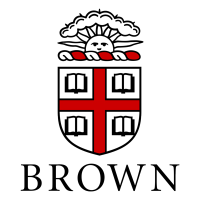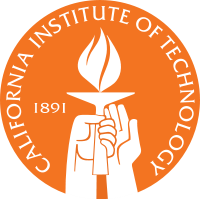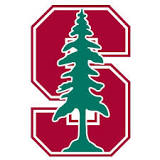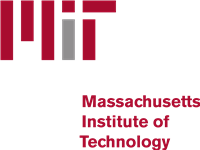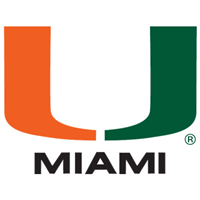What do they do?
Study the composition, structure, and other physical aspects of the Earth. May use geological, physics, and mathematics knowledge in exploration for oil, gas, minerals, or underground water; or in waste disposal, land reclamation, or other environmental problems. May study the Earth's internal composition, atmospheres, and oceans, and its magnetic, electrical, and gravitational forces. Includes mineralogists, paleontologists, stratigraphers, geodesists, and seismologists.
Also known as:
Development Geologist, Engineering Geologist, Environmental Protection Geologist, Exploration Geologist, Geological Specialist, Geologist, Geophysicist, Geoscientist, Hydrogeologist, Mine Geologist, Mining Production Geologist, Oceanographer, Petroleum Geologist, Project Geologist, Project Geophysicist, Research Geologist
-
0%
Change
Ranks #55 in job growth rate30Job Openings
Ranks #32 in net job growth
-
Brown University
Providence, RI
-
California Institute of Technology
Pasadena, CA
-
Stanford University
Stanford, CA
-
Massachusetts Institute of Technology
Cambridge, MA
-
University of Miami
Coral Gables, FL
Looking for colleges that offer a specific major? Use the College Match Tool to find your best-matched schools and discover your estimated Net Price!
- Doctorate or Professional Degree (12%)
- Master's degree (41%)
- Bachelor's degree (47%)
- Associate's degree (<1%)
- Some college, no degree (<1%)
- High school diploma equivalent (<1%)
- Less than high school diploma (<1%)
Most Popular Majors that prepare Geoscientists, Except Hydrologists and Geographers
-
#1
-
Degrees Granted
452
-
Female Students
203
-
Male Students
249
-
Median Starting Salary
$44,800
-
-
#2
-
Degrees Granted
103
-
Female Students
61
-
Male Students
42
-
Median Starting Salary
$44,800
-
-
#3
-
Degrees Granted
77
-
Female Students
32
-
Male Students
45
-
Median Starting Salary
$44,800
-
-
#4
-
Degrees Granted
72
-
Female Students
22
-
Male Students
50
-
Median Starting Salary
$44,800
-
-
#5
-
Degrees Granted
30
-
Female Students
17
-
Male Students
13
-
Median Starting Salary
$47,533
-
People in this career often have these skills:
- Reading Comprehension - Understanding written sentences and paragraphs in work-related documents.
- Speaking - Talking to others to convey information effectively.
- Science - Using scientific rules and methods to solve problems.
- Critical Thinking - Using logic and reasoning to identify the strengths and weaknesses of alternative solutions, conclusions, or approaches to problems.
- Active Listening - Giving full attention to what other people are saying, taking time to understand the points being made, asking questions as appropriate, and not interrupting at inappropriate times.
- Writing - Communicating effectively in writing as appropriate for the needs of the audience.
- Complex Problem Solving - Identifying complex problems and reviewing related information to develop and evaluate options and implement solutions.
- Judgment and Decision Making - Considering the relative costs and benefits of potential actions to choose the most appropriate one.
- Mathematics - Using mathematics to solve problems.
People in this career often know a lot about:
- Geography - Knowledge of principles and methods for describing the features of land, sea, and air masses, including their physical characteristics, locations, interrelationships, and distribution of plant, animal, and human life.
- Mathematics - Knowledge of arithmetic, algebra, geometry, calculus, statistics, and their applications.
- English Language - Knowledge of the structure and content of the English language including the meaning and spelling of words, rules of composition, and grammar.
- Chemistry - Knowledge of the chemical composition, structure, and properties of substances and of the chemical processes and transformations that they undergo. This includes uses of chemicals and their interactions, danger signs, production techniques, and disposal methods.
- Physics - Knowledge and prediction of physical principles, laws, their interrelationships, and applications to understanding fluid, material, and atmospheric dynamics, and mechanical, electrical, atomic and sub-atomic structures and processes.
- Computers and Electronics - Knowledge of circuit boards, processors, chips, electronic equipment, and computer hardware and software, including applications and programming.
People in this career often have talent in:
- Written Comprehension - The ability to read and understand information and ideas presented in writing.
- Inductive Reasoning - The ability to combine pieces of information to form general rules or conclusions (includes finding a relationship among seemingly unrelated events).
- Oral Comprehension - The ability to listen to and understand information and ideas presented through spoken words and sentences.
- Oral Expression - The ability to communicate information and ideas in speaking so others will understand.
- Written Expression - The ability to communicate information and ideas in writing so others will understand.
- Problem Sensitivity - The ability to tell when something is wrong or is likely to go wrong. It does not involve solving the problem, only recognizing that there is a problem.
- Deductive Reasoning - The ability to apply general rules to specific problems to produce answers that make sense.
- Category Flexibility - The ability to generate or use different sets of rules for combining or grouping things in different ways.
- Information Ordering - The ability to arrange things or actions in a certain order or pattern according to a specific rule or set of rules (e.g., patterns of numbers, letters, words, pictures, mathematical operations).
- Mathematical Reasoning - The ability to choose the right mathematical methods or formulas to solve a problem.
- Speech Clarity - The ability to speak clearly so others can understand you.
- Near Vision - The ability to see details at close range (within a few feet of the observer).
- Speech Recognition - The ability to identify and understand the speech of another person.
- Fluency of Ideas - The ability to come up with a number of ideas about a topic (the number of ideas is important, not their quality, correctness, or creativity).
People in this career often do these activities:
- Conduct research to gain information about products or processes.
- Design research studies to obtain scientific information.
- Analyze geological or geographical data.
- Interpret research or operational data.
- Research geological features or processes.
- Analyze environmental data.
- Measure environmental characteristics.
- Prepare maps.
- Prepare scientific or technical reports or presentations.
- Communicate results of environmental research.
- Instruct college students in physical or life sciences.
- Monitor construction operations.
- Inspect work sites to identify potential environmental or safety hazards.
- Advise others on management of emergencies or hazardous situations or materials.
- Locate natural resources using geospatial or other environmental data.
- Advise others about environmental management or conservation.
- Review professional literature to maintain professional knowledge.
- Proofread documents, records, or other files to ensure accuracy.
- Review plans or proposals for environmental conservation.
- Analyze geological samples.
- Research hydrologic features or processes.
- Develop plans to manage natural or renewable resources.
- Determine methods to minimize environmental impact of activities.
- Coordinate cross-disciplinary research programs.
- Develop sustainable industrial or development methods.
- Develop software or applications for scientific or technical use.
- Research impacts of environmental conservation initiatives.
This page includes data from:

 Occupation statistics: USDOL U.S. Bureau of Labor Statistics Occupational Employment Statistics
Occupation statistics: USDOL U.S. Bureau of Labor Statistics Occupational Employment Statistics


